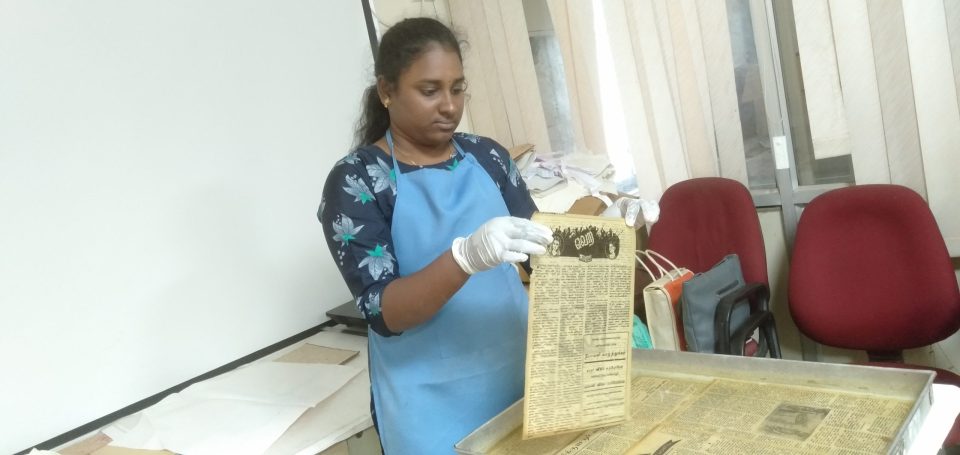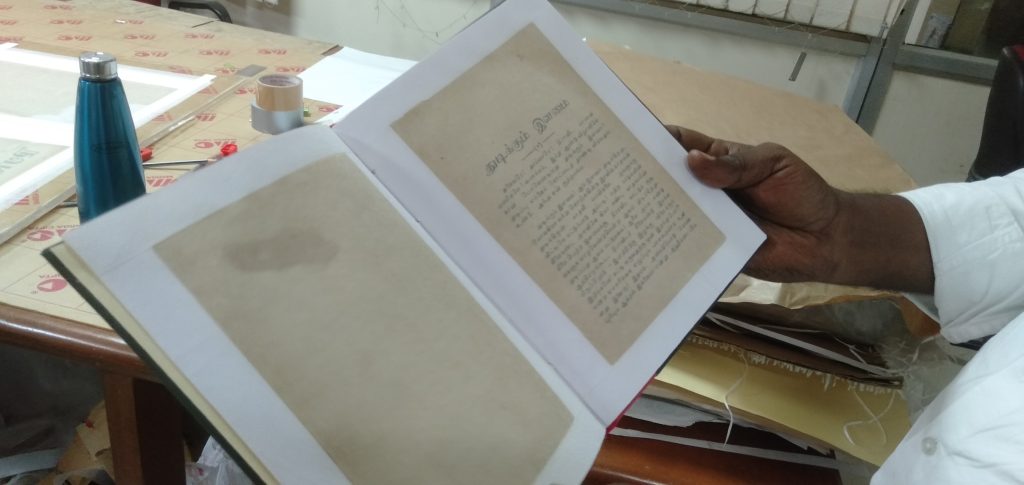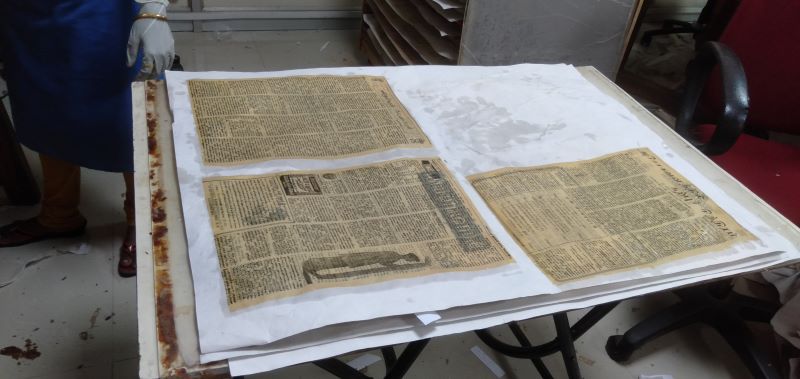
Tamilinaiyam: How TN's sole state-run online library yearns for greater visibility

Amidst a wave of anticipation and excitement, the Tamil Nadu government inaugurated the Kalaignar Centenary Library in Madurai last week. With six floors and an astounding collection of about four lakh books, the library has become a new hotspot in the temple city. It is expected that the library will benefit people from the Southern districts in general and competitive exam aspirants in particular.
The state already has a world-class library, namely the Anna Centenary Library in Chennai, which was established in 2010. With eight floors and nearly six lakh books, it is often considered one of the largest libraries in Asia. With 4,634 public libraries, Tamil Nadu ranks third in the list of states with the highest number of libraries, according to a 2019 data from Raja Rammohun Roy Library Foundation, Ministry of Culture, New Delhi. It is surpassed by Kerala (8,415) and Karnataka (6,797).
However, the state, which often boasts about promoting reading by gifting books to guests from other states at government functions and organising book fairs in all 38 districts, as well as opening new physical libraries, seems to forget that most young readers in the state prefer reading online rather than printed books.
This forgetfulness is evident in how the state manages its only online library, the Tamil Digital Library, which provided the Kalaignar Centenary Library with around 20,000 rare books from its collection. The library is also in the process of preserving extremely rare books using de-acidification and the Japanese tissue paper method. Furthermore, this library, a part of the Tamil Virtual Academy (formerly Tamil Virtual University), was founded by none other than the beloved leader of the party in power, M Karunanidhi.

A. Vivekanandhan, an independent researcher on Tamil Nadu’s printing culture, told The Federal that the state government should promote this library more to attract a larger number of users. “For independent researchers like me, this is an asset. The resources available here are invaluable. Without this library, I wouldn’t have had access to books like Bharati as a Translator, written by the poet’s brother C. Viswanathan, or Grammatica Damulica, a Tamil grammar book written in Latin by Bartholomäus Ziegenbalg, who first translated the Bible into Tamil.
A treasure trove of archives
Tamil Virtual University was founded on February 17, 2001, with the aim of providing Tamil education to the Tamil diaspora online and promoting Tamil computing. It offers certificate, diploma, and degree courses in Tamil. Administered by the state’s information technology department, the institution was rechristened Tamil Virtual Academy in 2010.
Also read: How Madurai writer-translator C Rajeswari became a master chronicler of MGR
Following the regime change in May 2001, the library became dormant, despite the Academy’s efforts to establish an online library in 2002 by scanning publications from various state government departments. Although the DMK returned to power in 2006, the Academy didn’t see much fillip apart from the name change.
In 2015, owing to the efforts of the then director and current Chairperson of the institution, T. Udhayachandran, the digitisation of books and documents from various institutions such as Connemara Public Library (Chennai), Saraswathi Mahal Library (Thanjavur), Government Oriental Manuscript Library (Chennai), Dr U Ve Swaminatha Iyer Library (Chennai), Tamil Nadu State Archives (Chennai), Government Museum (Chennai), the archaeology department, and the MGR Government Film and Television Institute (Chennai) commenced.
Unfortunately, the process came to a standstill due to the 2015 Chennai floods. The floods posed a significant threat to the archival materials and rare books that were stored in the historic government buildings. This highlighted the urgent need to digitize all the available materials.
“In the next four years, about 30,000 books and more than 53 lakh pages of archival documents were digitised. Amidst these activities, efforts were taken to create a separate website for these digitised books. On October 11, 2017, the Tamilinaiyam Digital Library came into existence. So far, the online resource has registered nearly five crore visits and 21 lakh downloads,” said SR Gandhi, the director of the Academy.

Currently, the library has seven lakh palm-leaf manuscripts; nearly 20,000 rare books; 3,300 nationalised books; 1,200 books published by Tamil Nadu Textbook and Educational Services Corporation; 16,000 periodicals and nearly 4,000 entries of Archive Indexes of government documents, palm-leaf manuscripts and the complete history of the Indian freedom movement.
‘An effort to democratise knowledge’
Overall, the library has more than 86,000 e-books and it aims to provide another one lakh books in the coming months, said Chithanai, a resource person with the library. He said that the library encompasses a wide range of books across diverse subjects such as literature, religion, history, health, science, and culture. It also has the ancient Sangam texts, folklore literature, children books, encyclopaedias and dictionaries.
Also read: How TP Mani, a Malayali migrant, fostered a reading culture with a bookstore in Nellore
“We have a separate section in this library viz., Tagavalaatruppadai, where one can find details about all the temple sites, historical sites and monuments, ancient coins, archeological sites, stone inscriptions, copper plates, sculptures and paintings,” he said. In the coming months, the library will have a multimedia section where one can find the audio-visuals of speeches by great leaders like Periyar EV Ramasamy, CN Annadurai and K. Kamaraj, he added.
“Efforts are also being made to ensure that these books and other materials are accessible to the differently-abled. Earlier, if someone wanted to access a rare book or document from a public library or the archives, he/she would have would have to go through a lengthy process of obtaining permissions from various officials. Now, those materials can be accessed with just a click. So, essentially, we are striving to democratise knowledge,” said Chithanai.

